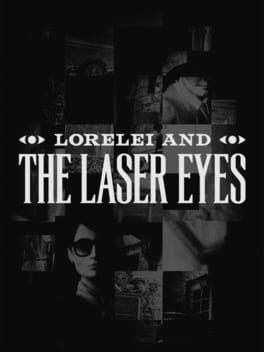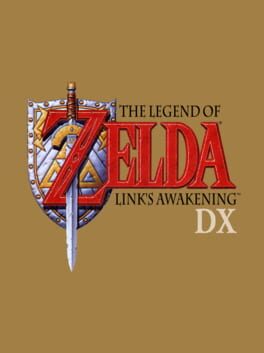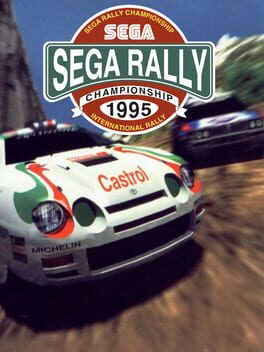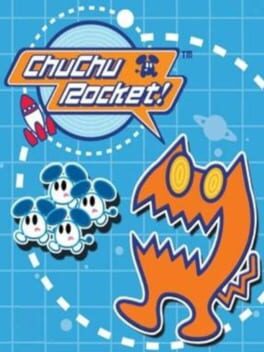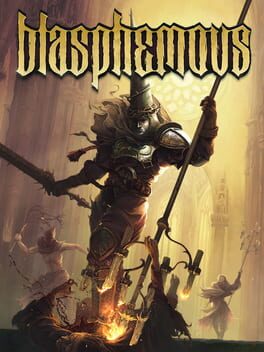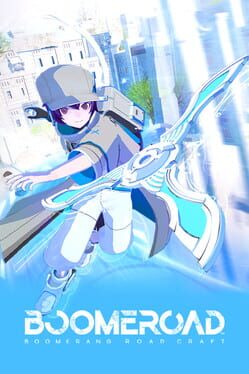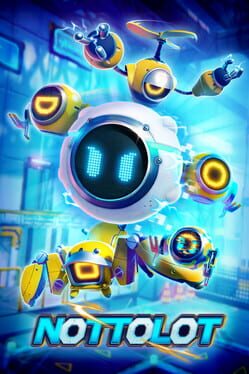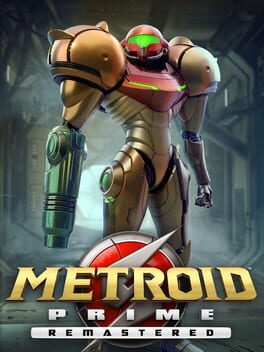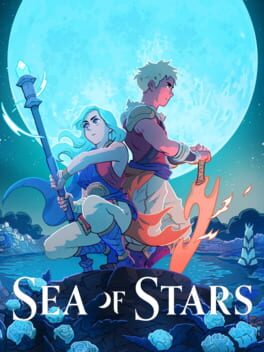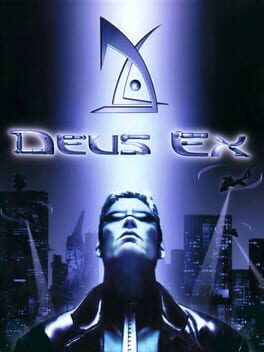Psientologist
356 Reviews liked by Psientologist
"I can't see shit."
I have a few quibbles (why aren't the uncrossed-out mental notes at the top of the list), but I very much enjoyed finding my way to the center of Lorelei, despite not being a puzzle kind of girl. I half-filled my FF7 Rebirth Original Soundtrack Stamp notebook with unintelligible notes, and what more can I say than that.
I have a few quibbles (why aren't the uncrossed-out mental notes at the top of the list), but I very much enjoyed finding my way to the center of Lorelei, despite not being a puzzle kind of girl. I half-filled my FF7 Rebirth Original Soundtrack Stamp notebook with unintelligible notes, and what more can I say than that.
Tremendous in its concept, execution and atmosphere. A puzzle game that combines open world-ish puzzle solving with the "open up paths" gameplay of something like Resident Evil 2 Remake leading to an absolute masterpiece.
Lorelei's genius comes from its structure: the Hotel & its surroundings are your play area for the entire game and are all interconnected. One of the first puzzles I encountered while playing the game was solved 12 hours deep as part of the ending sequence.
You'd think that this vast availability of options would lead to confusion as to which path can actually be taken, which solutions are possible based on current information, but it really doesn't because the game operates on the following principle: if you're looking at a puzzle and are confused about how it works, then you probably don't have the resources to solve it. Luckily, the game has so many avenues open that you can always jump to another question you have, slowly ticking off puzzles, opening doors and going further and further.
A real life notebook is required for this game. It took me 13 pages of notes to finish the game and that's with very conservative use of space. The in-game information menu is fantastic in its own right but cannot be accessed during puzzles and therefore only convenient for fixing your irl notes for the most part.
Aesthetically, the game rocks. Its art direction is gorgeous and so peculiar that it makes its most interesting pieces of imagery really pop. The music is fantastic as well.
Lorelei is definitely 2024's "off-radar" standout so far and continues a very, very strong indie release year along with Balatro, Pacific Drive and Animal Well.
8.7/10
Lorelei's genius comes from its structure: the Hotel & its surroundings are your play area for the entire game and are all interconnected. One of the first puzzles I encountered while playing the game was solved 12 hours deep as part of the ending sequence.
You'd think that this vast availability of options would lead to confusion as to which path can actually be taken, which solutions are possible based on current information, but it really doesn't because the game operates on the following principle: if you're looking at a puzzle and are confused about how it works, then you probably don't have the resources to solve it. Luckily, the game has so many avenues open that you can always jump to another question you have, slowly ticking off puzzles, opening doors and going further and further.
A real life notebook is required for this game. It took me 13 pages of notes to finish the game and that's with very conservative use of space. The in-game information menu is fantastic in its own right but cannot be accessed during puzzles and therefore only convenient for fixing your irl notes for the most part.
Aesthetically, the game rocks. Its art direction is gorgeous and so peculiar that it makes its most interesting pieces of imagery really pop. The music is fantastic as well.
Lorelei is definitely 2024's "off-radar" standout so far and continues a very, very strong indie release year along with Balatro, Pacific Drive and Animal Well.
8.7/10
Lorelei and the Laser Eyes feels like an anachronism. I don’t just mean this from how the game haphazardly scatters documents from 1847 and 2014 throughout the hotel set in 1962, or how it references multiple past eras of gaming with PS1 survival-horror fixed camera angles or DOS-inspired 1-bit adventure game segments hidden away on floppy disks, though these elements certainly play their part in creating what developer Simogo refers to as “collage of styles, ideas, and disparate inspirations.” No, what instantly caught my attention was how uncompromising yet thoughtful the game felt. In an era where most developers seem content to simply pay lip service to the great mystery/adventure games of old while over-simplifying their gameplay mechanics, Simogo seems to have figured out the formula of creating a final product that feels intricately designed, yet ultimately accessible.
I’ll admit that I’m not too familiar with Simogo’s previous work; the only other game I’ve played by them is Sayonara Wild Hearts. That said, I would not have immediately guessed that Lorelei was by the same developers from my first hour alone. In some ways, Lorelei presents an interesting foil to Sayonara. Sayonara’s persisting strength is its grasp on harmony: the epitome of what is essentially a playable music video, it’s pure and immediate gratification racking up points to the beat in this flashy and lush arcade game. On the other hand, Lorelei feels deliberately constructed to emphasize its dissonance. From the uncomfortably quiet manor clashing with the occasional audible off-screen disruption to the vibrating monochrome textures interspersed with low poly environment, nothing seems right in its place. It’s a much slower burn than Sayonara as well, with most players taking fifteen hours or more (in comparison to Sayonara’s two hour runtime) to navigate the sprawling hotel with no hand-holding provided whatsoever.
As different as these two titles appear however, they do have one thing in common: minimalism. For example, both games require just a d-pad/joystick and a single button to be played. Sayonara gets away with this because the available actions on input feel clearly telegraphed by the visuals and generally boil down to moving and timed dodges with the music. Lorelei similarly gets away with this because it deemphasizes more complex/technical interactions (i.e. the usage suite of adventure game verbs in look, touch, obtain, etc) with sheer puzzle intuition. Simogo describes this as forcing the player to “get a deeper understanding… and connection to [the world]” and just like Sayonara, “wanted the complexity of the game to revolve around this, and not dexterity.”
What makes this particularly impressive is how Simogo was able to strike a fair balance between simplicity and variety. According to the game’s development page, the game became “a very iterative toy box” where many different systems conceptualized over the game’s development cycle could interact and interplay with one another in different ways. Interestingly, I found that most of the solutions to these different puzzles were not that difficult or complex to determine. Even so, despite Lorelei’s simple controls and straightforward objective (figuring out passwords/key phrases to unlock new areas and information), the game is able to successfully obfuscate the means to achieve said objective by drastically changing the means in which information is presented to the player, for instance by using different camera angles and systems that allowed them to “change a lot of rendering parameters on the fly” from the aforementioned iterative toy box. Additionally, Simogo highlights key details from clues to ensure that players don’t get too confused, but leave enough ambiguity by never outright leading the players onto specific logic trains and refusing to provide any specific assistance (no in-game hint system and no specific feedback aside from telling players if they’re right/wrong). The result is a confident final product that understands the persisting strength of a good puzzle adventure game: a game that gives the player all the information they need to succeed while giving them the room to work out the connections themselves, and a game that constantly surprises the player with new opportunities to intuitively understand the world around them without ever feeling too frustrated by unfamiliar mechanics.
I do have to admit however, that there are a few instances where Lorelei’s minimalism and uncompromising nature can backfire. For instance, the lack of detailed player feedback aside from a right/wrong sound effect usually isn’t a significant deterrent, given that players can fine-tune most of the game’s one-variable solutions and are encouraged to tackle the hotel’s many branching paths and puzzles at their own pace, since they may not even have the pertinent information required and might have to work out other puzzles to obtain said information. However, certain late-game puzzles require multiple sets of answers (ex: a computer that requires three different types of phrases in a password), and it can be frustrating getting barricaded by such puzzles and not knowing which part of the answer requires more investigation. I’ll also echo some of the previous complaints regarding the controls, because while I appreciate that Simogo has crafted a base system where more complex controls aren’t required, I also don’t think that it’s a huge ask to add a “cancel/back” input for a second button. As a result, it takes significantly more scrolling to get out of menus or spamming random inputs to erroneously enter passwords if I want to back out of a puzzle, and the amount of wasted time per menu/puzzle really builds up over a playthrough.
While I did find the somewhat telegraphed ending slightly underwhelming given how elaborately the game wove its lore into its many clues, I nevertheless really savored my time with Lorelei. I might not have laser eyes, but I can certainly see this game’s approach upon system cohesion influencing many puzzle adventure games to come. As it stands, it’s another solid entry for Simogo’s innovative yet familiar library, and I’ll be thinking about its many secrets for quite some time. Perhaps it's finally time to delve into Device 6.
I’ll admit that I’m not too familiar with Simogo’s previous work; the only other game I’ve played by them is Sayonara Wild Hearts. That said, I would not have immediately guessed that Lorelei was by the same developers from my first hour alone. In some ways, Lorelei presents an interesting foil to Sayonara. Sayonara’s persisting strength is its grasp on harmony: the epitome of what is essentially a playable music video, it’s pure and immediate gratification racking up points to the beat in this flashy and lush arcade game. On the other hand, Lorelei feels deliberately constructed to emphasize its dissonance. From the uncomfortably quiet manor clashing with the occasional audible off-screen disruption to the vibrating monochrome textures interspersed with low poly environment, nothing seems right in its place. It’s a much slower burn than Sayonara as well, with most players taking fifteen hours or more (in comparison to Sayonara’s two hour runtime) to navigate the sprawling hotel with no hand-holding provided whatsoever.
As different as these two titles appear however, they do have one thing in common: minimalism. For example, both games require just a d-pad/joystick and a single button to be played. Sayonara gets away with this because the available actions on input feel clearly telegraphed by the visuals and generally boil down to moving and timed dodges with the music. Lorelei similarly gets away with this because it deemphasizes more complex/technical interactions (i.e. the usage suite of adventure game verbs in look, touch, obtain, etc) with sheer puzzle intuition. Simogo describes this as forcing the player to “get a deeper understanding… and connection to [the world]” and just like Sayonara, “wanted the complexity of the game to revolve around this, and not dexterity.”
What makes this particularly impressive is how Simogo was able to strike a fair balance between simplicity and variety. According to the game’s development page, the game became “a very iterative toy box” where many different systems conceptualized over the game’s development cycle could interact and interplay with one another in different ways. Interestingly, I found that most of the solutions to these different puzzles were not that difficult or complex to determine. Even so, despite Lorelei’s simple controls and straightforward objective (figuring out passwords/key phrases to unlock new areas and information), the game is able to successfully obfuscate the means to achieve said objective by drastically changing the means in which information is presented to the player, for instance by using different camera angles and systems that allowed them to “change a lot of rendering parameters on the fly” from the aforementioned iterative toy box. Additionally, Simogo highlights key details from clues to ensure that players don’t get too confused, but leave enough ambiguity by never outright leading the players onto specific logic trains and refusing to provide any specific assistance (no in-game hint system and no specific feedback aside from telling players if they’re right/wrong). The result is a confident final product that understands the persisting strength of a good puzzle adventure game: a game that gives the player all the information they need to succeed while giving them the room to work out the connections themselves, and a game that constantly surprises the player with new opportunities to intuitively understand the world around them without ever feeling too frustrated by unfamiliar mechanics.
I do have to admit however, that there are a few instances where Lorelei’s minimalism and uncompromising nature can backfire. For instance, the lack of detailed player feedback aside from a right/wrong sound effect usually isn’t a significant deterrent, given that players can fine-tune most of the game’s one-variable solutions and are encouraged to tackle the hotel’s many branching paths and puzzles at their own pace, since they may not even have the pertinent information required and might have to work out other puzzles to obtain said information. However, certain late-game puzzles require multiple sets of answers (ex: a computer that requires three different types of phrases in a password), and it can be frustrating getting barricaded by such puzzles and not knowing which part of the answer requires more investigation. I’ll also echo some of the previous complaints regarding the controls, because while I appreciate that Simogo has crafted a base system where more complex controls aren’t required, I also don’t think that it’s a huge ask to add a “cancel/back” input for a second button. As a result, it takes significantly more scrolling to get out of menus or spamming random inputs to erroneously enter passwords if I want to back out of a puzzle, and the amount of wasted time per menu/puzzle really builds up over a playthrough.
While I did find the somewhat telegraphed ending slightly underwhelming given how elaborately the game wove its lore into its many clues, I nevertheless really savored my time with Lorelei. I might not have laser eyes, but I can certainly see this game’s approach upon system cohesion influencing many puzzle adventure games to come. As it stands, it’s another solid entry for Simogo’s innovative yet familiar library, and I’ll be thinking about its many secrets for quite some time. Perhaps it's finally time to delve into Device 6.
Metroid Dread
2021
Thus ends my wee run of Metroid playthroughs. Had a great time, once again. The thrill of exploring in this is fantastic. I left it long enough from my previous run that I couldn't quite remember half of what was coming, so that was pretty cool. Unless it's my age, in which case, uh oh!
Like Prime, I decided to run this one through in hard mode, and I have to say I did struggle at some points, which is a different story to last time, where I breezed through it, but that was coming straight off my original completion back at release. It was just as rewarding, however, and by the time I got to the final boss, I was fine with taking as many attempts as necessary to get there. I couldn't be arsed with 100% completion however and I managed to do it in a few minutes shy of 10 hours.
A very good game, that I have enjoyed coming back to at least 3 times now. And I doubt it'll be the last.
Like Prime, I decided to run this one through in hard mode, and I have to say I did struggle at some points, which is a different story to last time, where I breezed through it, but that was coming straight off my original completion back at release. It was just as rewarding, however, and by the time I got to the final boss, I was fine with taking as many attempts as necessary to get there. I couldn't be arsed with 100% completion however and I managed to do it in a few minutes shy of 10 hours.
A very good game, that I have enjoyed coming back to at least 3 times now. And I doubt it'll be the last.
It's an insane, nostalgic thing to say, I know. This is my favourite Zelda. I think it's the best one. I have played LADX start to finish more times than I can count, but this is the first time I've done it since BOTW/TOTK came out. And those games are incredible, and my head would probably say they are obviously the better games, but Link's Awakening, Koholint, has my heart. I will never forget it, that memory must be the real dream world.
I reckon if I finally ever get therapy, I could spend a whole session talking about Link's Awakening.
I reckon if I finally ever get therapy, I could spend a whole session talking about Link's Awakening.
Trying and trying to get better. I manage to stay completely the same for the majority of my attempts. Slight adjustment in the way I use breaks and drifts etc, but the best I fiiiiiiiiiiiiiii-nish, is always 5th. Part of me wants to knock the difficulty down, just to get that 1st place, but when it's this fun, do you even need to?
I even tried playing in manual transmission and still had the same results; a great time. I decided to watch the replay after several attempts at coming 5th, and I could have happily sat there for a while listening to the music.
I might try it in 3 lap mode next time, see how badly that goes.
I wish I had more Saturn games, but this is by far and away, my favourite so far.
I even tried playing in manual transmission and still had the same results; a great time. I decided to watch the replay after several attempts at coming 5th, and I could have happily sat there for a while listening to the music.
I might try it in 3 lap mode next time, see how badly that goes.
I wish I had more Saturn games, but this is by far and away, my favourite so far.
ChuChu Rocket!
1999
Blasphemous
2019
Citizen Sleeper
2022
Boomeroad
2024
Like Doronko Wano and Nottolot, this is another game from Bamco's New Employee Training Project. It's a thing they do where incoming employees are encouraged to work on smaller games to hone their craft before getting moved onto larger projects. Some get picked to be released for free on steam. It's a cool idea I'd love to see more places try.
Out of the three, this one does the best job of showing off a nice idea, even if it's my least favourite of them. You can see the potential here for a fun puzzle platformer.
Out of the three, this one does the best job of showing off a nice idea, even if it's my least favourite of them. You can see the potential here for a fun puzzle platformer.
Nottolot
2024
I decided to play Prime, again. Only I thought I'd try hard mode, as I did the same on my 2nd Dread playthrough and I had a great time. Of course they are the same thing...
It was pretty much business as usual until I got to the Phazon Mines. That soon started to give me a kicking. But once I picked up the plasma beam, it felt like I was in god mode. And then I got to Ridley. Spent the last 3 days basically doing 2 (3 if you count the 2 stages of Metroid Prime, the boss, not the game itself) bosses. Ridley took more attempts than the final boss, but it was just a case of repetition and grinding it out. If you get complacent or greedy, you get punished for it. Safe to say I did both several times. What, am I supposed to learn from my mistakes?
But it was a rewarding playthrough, and finishing it felt great. I was in two minds just to fuck it off, but I'd come this far, and surely to give up at the last boss would be pathetic. So I soldiered on. Overran on my lunch break, but it was worth it.
This might have overtaken Dread as my favourite Metroid.
It was pretty much business as usual until I got to the Phazon Mines. That soon started to give me a kicking. But once I picked up the plasma beam, it felt like I was in god mode. And then I got to Ridley. Spent the last 3 days basically doing 2 (3 if you count the 2 stages of Metroid Prime, the boss, not the game itself) bosses. Ridley took more attempts than the final boss, but it was just a case of repetition and grinding it out. If you get complacent or greedy, you get punished for it. Safe to say I did both several times. What, am I supposed to learn from my mistakes?
But it was a rewarding playthrough, and finishing it felt great. I was in two minds just to fuck it off, but I'd come this far, and surely to give up at the last boss would be pathetic. So I soldiered on. Overran on my lunch break, but it was worth it.
This might have overtaken Dread as my favourite Metroid.
Sea of Stars
2023
I enjoyed this a lot, but if I was writing some kind of reviewer’s tagline it’d be something like “The Sea is beautiful but not very deep.”
The game wears it’s influences on its sleeve, openly a tribute to classic SNES JRPG’s, so when it’s evoking the vibes of those games it’s all very nice and pleasant, but what that means is that by design the story, world, and characters, feel like they’re written that way to most emulate the feel of other games that you might have played in the past and liked.
If the starting point is “I want to make something that’s like this other thing.” Well then, it’s just not going to be as interesting as the more original work.
Maybe I’m being overly cynical and presuming too much about the writers’ goals, but it certainly feels that way, particularly when they’re putting in meta-jokes about JRPG tropes… you don’t need to undermine the reality of your own world with trite observations.
What all that means is moment, I’m enjoying the story, I’m liking the characters, but I also have this vague feeling that it’s mainly because it’s very deliberately like other things that I’ve also liked.
The Combat then – again enjoyable, it’s a good take on turn-based combat, it’s probably getting the “lock” mechanic from something else too although I haven’t played whatever game that is. I do sometimes find it irritating that enemies would suddenly go.
“Here prick, break 12 locks of every damage type in one turn!”
And I’m like
“Doesn’t seem fair?????.”
It is fine though, you can’t 100% break the lock every time by, but it can feel odd and like you might be missing something sometimes.
I do think if the game were any longer the lack of complexity would have started to be a big problem. There isn’t much you can do with character progression or builds in this game. When you level up you simply choose between what stats you want built up.
That’s fine, the combat is more puzzle and decision based, but I got through this entire game without dying (I did die once on a simple random encounter because I’d completely forgotten to heal after the battle before, and I’m absolutely cursing myself for this) There are relics you can turn on to make the game harder (and easier) and that’s all fine, and I’m not saying introducing lots more mechanics and character build variety would necessarily work in this game, it would probably just create other problems. But I think it’s a system that feels like it never quite gets out of third gear.
I feel like I’ve spent this whole time criticizing a game I really enjoyed and had very few complaints about, but that’s the thing. It doesn’t do much wrong, but doesn’t do much that’s amazing either… although that one bit where you traverse to a new area for the final third of the game, wow!
The game wears it’s influences on its sleeve, openly a tribute to classic SNES JRPG’s, so when it’s evoking the vibes of those games it’s all very nice and pleasant, but what that means is that by design the story, world, and characters, feel like they’re written that way to most emulate the feel of other games that you might have played in the past and liked.
If the starting point is “I want to make something that’s like this other thing.” Well then, it’s just not going to be as interesting as the more original work.
Maybe I’m being overly cynical and presuming too much about the writers’ goals, but it certainly feels that way, particularly when they’re putting in meta-jokes about JRPG tropes… you don’t need to undermine the reality of your own world with trite observations.
What all that means is moment, I’m enjoying the story, I’m liking the characters, but I also have this vague feeling that it’s mainly because it’s very deliberately like other things that I’ve also liked.
The Combat then – again enjoyable, it’s a good take on turn-based combat, it’s probably getting the “lock” mechanic from something else too although I haven’t played whatever game that is. I do sometimes find it irritating that enemies would suddenly go.
“Here prick, break 12 locks of every damage type in one turn!”
And I’m like
“Doesn’t seem fair?????.”
It is fine though, you can’t 100% break the lock every time by, but it can feel odd and like you might be missing something sometimes.
I do think if the game were any longer the lack of complexity would have started to be a big problem. There isn’t much you can do with character progression or builds in this game. When you level up you simply choose between what stats you want built up.
That’s fine, the combat is more puzzle and decision based, but I got through this entire game without dying (I did die once on a simple random encounter because I’d completely forgotten to heal after the battle before, and I’m absolutely cursing myself for this) There are relics you can turn on to make the game harder (and easier) and that’s all fine, and I’m not saying introducing lots more mechanics and character build variety would necessarily work in this game, it would probably just create other problems. But I think it’s a system that feels like it never quite gets out of third gear.
I feel like I’ve spent this whole time criticizing a game I really enjoyed and had very few complaints about, but that’s the thing. It doesn’t do much wrong, but doesn’t do much that’s amazing either… although that one bit where you traverse to a new area for the final third of the game, wow!
